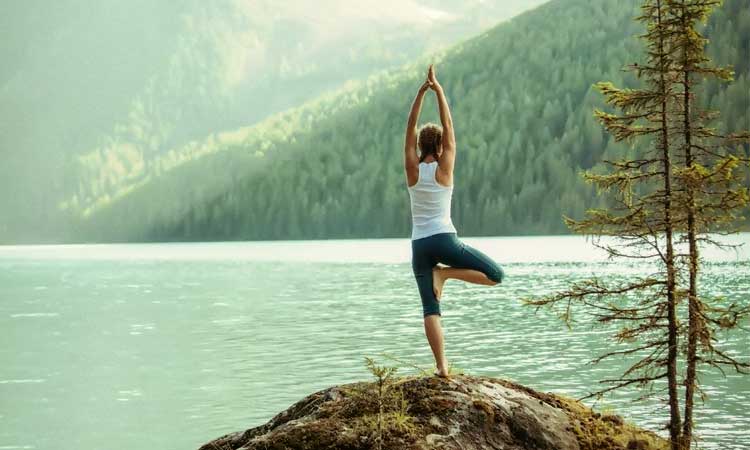It generally starts this way: Either your favorite yoga teacher cheerfully announces he/she is leading a yoga retreat in Mexico/Costa Rica/other exotic locale, or you spot an ad in a yoga publication/website, posted to the bulletin board of your local studio or while cruising the Internet. Regardless of how the seed is planted, it’s there. You may find yourself daydreaming of Downward Dogs under swaying palm trees, or meditating to the soundtrack of birdsong at dawn. “I’m committed to my practice,” you might think, “I’m ready for a yoga retreat.”
Before you press “buy” or commit any currency, taking a few precautions can be the difference between a refreshing, renewing experience, and a cautionary tale. Yogis, take heed:
Is this a yoga “vacation” or a yoga “retreat”?
What’s The Difference?
Generally, a yoga “vacation” features a gentler, more optional schedule. The location is usually a resort, and sometimes includes or offers excursions (think jungle zip-lining or snorkeling). Food costs may or may not be included, but usually at least two yoga sessions per day are offered.
A yoga “retreat” usually indicates a much more regimented experience. Retreats usually take place at ashrams or educational centers. Accommodations are austere, and food is usually vegetarian and served cafeteria-style. The days tend to begin at dawn (or earlier!), and attendance is expected at yoga classes, meals, and educational talks or led chanting or singing.
How Do I Make Sure I Don’t Book A Retreat When I Want A Yoga Vacation?
A bit of due diligence is crucial to tempering your expectations. If you’re expecting a restful week of hanging out in a hammock and hitting a yoga class once a day, you will be in for a rude awakening if you’ve signed up for a highly regimented experience. That 5 AM wake-up gong will be music to your ears if you’re expecting it (okay, let’s face it, the 5 AM gong is rarely the sweetest sound, but it is at least tolerable if you know it’s coming).
Ask questions. Don’t be afraid of sounding silly – it’s your money and it’s your time. What will the daily schedule be? Most places should be able to provide this, sometimes down to the hour. What time are yoga classes? What style of yoga? Are they mandatory? Is there any service required (if you are staying at an ashram, some require at least one hour of seva, or volunteer work, daily)? If so, what type of work is it? Are there daily periods of silence?
What are sleeping arrangements like? Bathroom situation (shared or private)? How much time each day is free? Are any excursions or side trips offered or included? What about meditation or kirtan? What about food? What type of clothing should you bring? Are yoga mats provided?
You should have ZERO questions about what is expected from you during your retreat.
Next, hit the internet. Check out reviews on TripAdvisor, Orbitz, and other online travel sites. See if TripFilms has any videos of your destination or where you will be staying. While this is an important step, it’s key to read reviews with a grain of salt. Not everyone has done their homework before booking, and some people are almost impossible to please. Which brings me to the next point:
What Type Of Traveler Am I?
Be brutally honest with yourself. Know your expectations, and do not force yourself outside of your comfort zone if you know, deep down, you will be miserable. Some years back, I went to Nicaragua with a friend. I booked a hotel and when I arrived, I was immediately blown away by the beautiful beachfront location and quaint pier leading out to a charmingly dilapidated restaurant. When my friend arrived, she was immediately blown away by the horribly dilapidated restaurant at the end of a ramshackle pier and the fact that the hotel had no air conditioning.
She couldn’t get out of there fast enough; I could have stayed forever. Listen to Shakespeare: “To thine own self be true.” There’s nothing wrong with either viewpoint, but know if you would see a stunning beachfront or a safety hazard and honor that. Especially if you are leaving the country, find out about electricity (some resorts limit the hours of electricity, especially newer eco-resorts), water usage, food, air conditioning, and insects. Don’t be surprised!
Finally, dear yogis, enjoy. Once you’ve done your homework, book that yoga vacation/retreat and appreciate the adventure, whether it’s a quiet, reflective trip, or a wild, exotic ride.
Do you have a lovely memory or a horror story (oh, no!) about a yoga retreat you’ve taken? Share in the comments!


